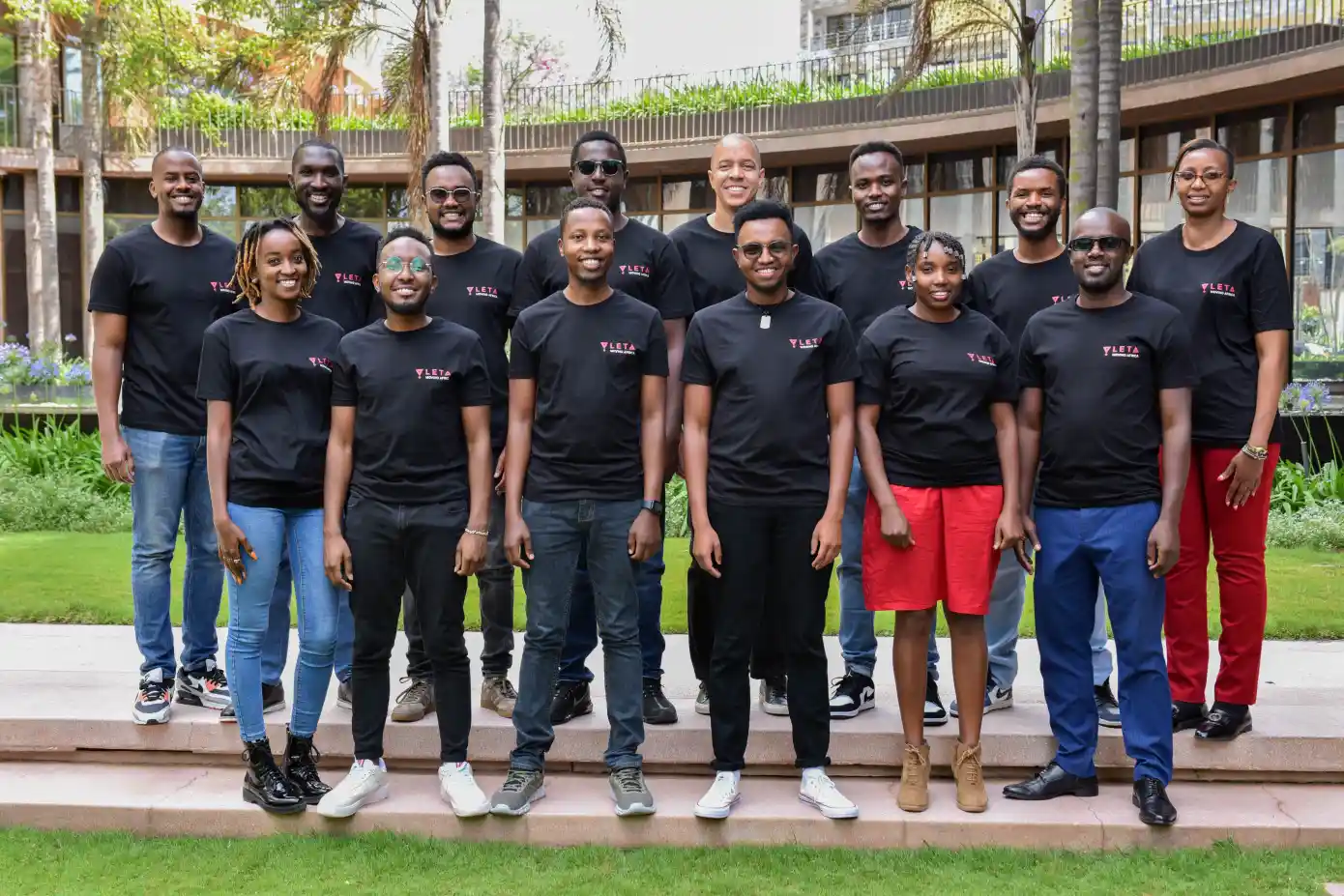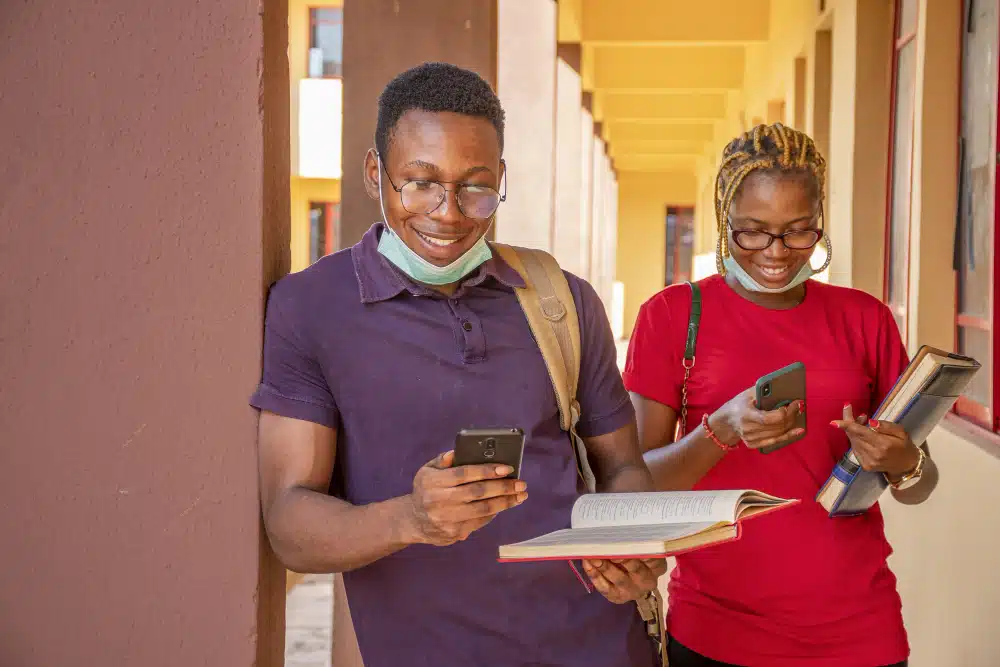Hola,
Victoria from Techpoint here,
Here’s what I’ve got for you today:
- Undersea cable damage disrupts Internet in East Africa
- Africa needs to pay more attention to Japan
- SA considers going electronic with elections
Undersea cable damage disrupts Internet in East Africa

Internet services in Somalia and parts of East Africa have taken a major hit after a crucial undersea cable, part of the PEACE (Pakistan & East Africa Connecting Europe) network, got damaged in the Red Sea.
The National Communications Authority (NCA) confirmed the outage, and people have been dealing with slow speeds, buffering issues, and poor connectivity. If you’ve been struggling to load a page or stream a video, this is why.
So, what happened? The PEACE cable, which connects East Africa to Europe and Asia, broke about 1,450km off the coast of Egypt on March 4, 2025. No one knows the exact cause yet, but there’s a theory floating around that abandoned ships might have drifted and damaged the cables, especially with all the Houthi-related disruptions in the region. The damage is serious enough that repairs could take months, with experts estimating a fix by mid-April 2025.
Since this cable is such a big deal for Somalia’s Internet, businesses, government operations, and everyday users have all felt the impact. Imagine entire offices struggling with slow emails, video calls cutting off mid-sentence, and social media scrolling at a snail’s pace. It’s a reminder of just how much we depend on undersea cables to stay connected.
Luckily, Somali telecom providers scrambled to reroute traffic through backup networks. Thanks to that, many areas have already seen services return to near-normal levels. But let’s be real, backup networks aren’t as strong, so expect some random connectivity hiccups in the coming weeks. The NCA has promised to keep working with ISPs to monitor and improve network performance as best as they can.
This whole mess just highlights a bigger problem: Africa’s Internet infrastructure isn’t as resilient as it should be. One cable break shouldn’t be enough to throw entire regions into chaos. Industry experts keep stressing the need for better redundancy: more submarine cables, stronger networks, and alternative data routes.
And it’s not the first time this has happened. The Red Sea and Indian Ocean have seen multiple undersea cable disruptions over the years, causing major Internet issues for East African countries. Until there’s serious investment in backup systems, these kinds of outages will keep happening. Or what do you think?
Africa needs to pay more attention to Japan

Bernard Laurendeau is all about building stronger business ties between Africa and Japan. As Managing Partner of Laurendeau & Associates, he has spent years connecting the dots between the two regions, specialising in consulting, digital transformation, and investment.
While Africa gets a lot of attention from the West, he thinks there’s a huge gap when it comes to Japan, and it’s a missed opportunity.
Africa has had a long-running relationship with China, and while it’s mostly been a win-win, knowledge transfer hasn’t always been part of the deal. Japan, on the other hand, takes a more hands-off approach, not forcing partnerships but offering expertise for those willing to take it. The problem? Hardly anyone is talking about it, and Africa isn’t fully tapping into what Japan has to offer.
For Laurendeau, the real opportunities lie in financial services, consumer goods, and tech, areas that will only grow as Africa’s middle class expands. In 2025, he’s focusing on Ethiopia, Nigeria, Kenya, South Africa, Rwanda, and Egypt. But there’s one major roadblock: the lack of reliable data. Without it, businesses struggle to scale, and investors hesitate.
So, what’s the way forward? How can African businesses unlock the right opportunities with Japan? Laurendeau believes the conversation needs to start now. For more insights, check out Laurendeau’s take on Chimgozirim’s latest.
SA considers going electronic with elections

If most African countries haven’t even figured out how to get a reliable power supply, where we don’t have to worry about load shedding or the national grid collapsing every other day, what are they really going to get right on the continent? I was actually saying this to someone just last week.
But now, South Africa’s Electoral Commission (IEC) is considering electronic voting (e-voting) to modernise elections. What do you think about the move, though?
Well, apparently, many South Africans are all for it. A recent study found that 79% of them would be more likely to vote if e-voting were an option. That’s a pretty solid number, and it makes sense. I mean, who enjoys standing in long queues just to mark an “X” on a piece of paper? If going digital makes elections smoother and faster, then why not?
The IEC, however, is not rushing into things. Chief Electoral Officer Sy Mamabolo made it clear that they’re still in the early discussion phase. They need to figure out whether South Africa’s digital infrastructure can handle it, if the cost is worth it, and whether people are even ready to make the switch. His take? “We’re not forcing anything, but this is a conversation we can’t ignore.” Fair enough.
E-voting could have some solid benefits. It would speed up the process, cut down costs in the long run (goodbye, expensive ballot papers), and even make voting more accessible for people with disabilities. But on the flip side, there are serious challenges. Cybersecurity being a big one.
If people already don’t trust election results in some places, imagine the chaos if hackers got involved. Kenya’s had its fair share of tech-related election drama, and that’s something South Africa will want to avoid.
To get this right, South Africa needs to build trust in the system. That means testing, transparency, and ensuring that people actually know how to use the new system. Other countries like Estonia, India, Brazil, and the Philippines have done it with varying degrees of success, while some nations gave up on e-voting altogether. So, South Africa needs to take notes before diving in.
If this works out, South Africa could join Egypt as one of the few African giants to go digital with elections. Nigeria considered it back in 2018, but nothing came of it. So, will South Africa actually pull this off, or will it be another “nice idea” that never sees the light of day? I guess only time will tell.
In case you missed them
- Vumatel secures approval to acquire Herotel, expanding fibre reach in South Africa
- Equator secures $55M to fund Africa’s early-stage climate tech startups
What I’m watching
- Why Religion Doesn’t Make Sense Anymore
- How to be a creative thinker | Carnegie Mellon University Po-Shen Loh
Opportunities
- Interswitch is hiring a Senior Software Developer. Apply here.
- PalmPay is recruiting a Business Developer. Apply here.
- Standard Bank Group is looking to fill several positions across Africa. Apply here.
- Paystack is hiring for several roles. Apply here.
- Moniepoint is hiring for several roles. Apply here.
- Follow Techpoint Africa’s WhatsApp channel to stay on top of the latest trends and news in the African tech space here.
Have a wonderful Wednesday!
Victoria Fakiya for Techpoint Africa.










